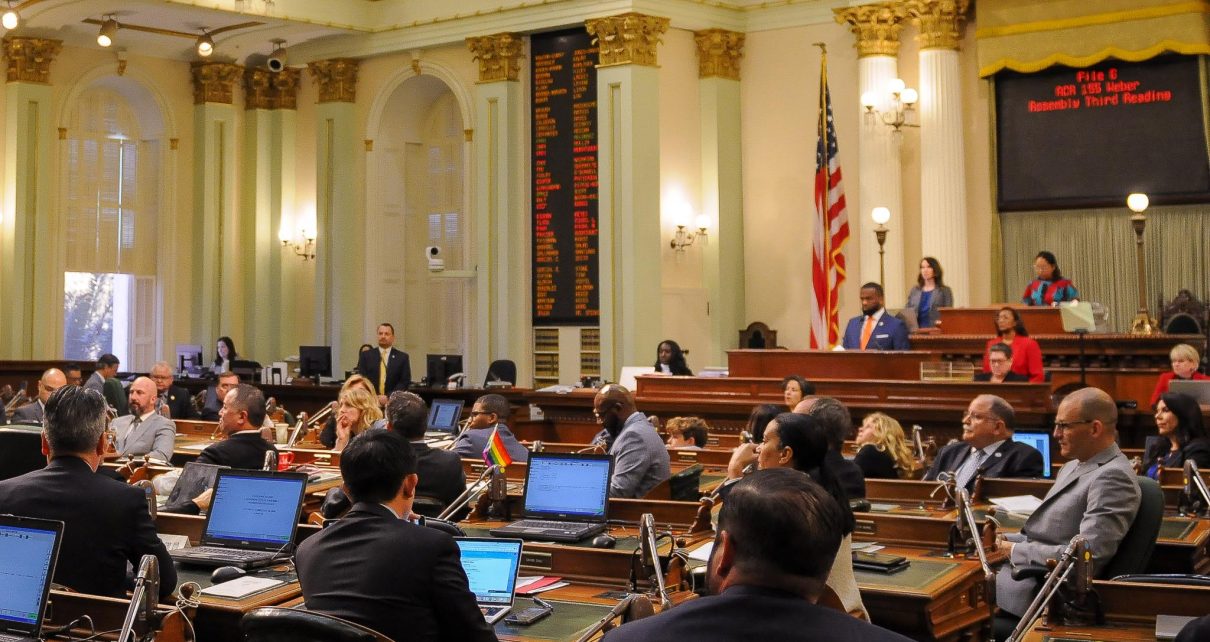
California State Assembly. (Photo: Kevin Sanders for California Globe)
Guidelines for Drafting Bill Titles
In California there is the constitutional single-subject rule
By Chris Micheli, February 12, 2023 8:08 am
Drafting a bill’s title is an important task for legislative lawyers. In California, there is the constitutional single-subject rule and so the title of the bill needs to ensure compliance with that requirement. In other words, the title needs to covers the components of the bill. It is generally recommended that the bill drafter write the title last, after finishing drafting the bill itself. And, the title should cover the subject of the bill and that is best done after writing the bill itself.
It is usually recommended that the bill drafter avoid the use of the words “and” and “or” in the bill title because a conjunction may be viewed as violating the constitutional single-subject requirement. The exception is a phrase that includes a conjunction and no single word exists to describe that subject (e.g., drug and alcohol offense).
Another recommendation is to not have a narrative title that attempts to list at length all items contained in a bill, rather than a single, common subject that covers all items in the bill. The bill drafter should also avoid generic statements, such as “and for other purposes” in the title. While that phrase is common in Congressional legislation at the federal level, it should be avoid in California bills.
The bill drafter also should generally avoid too broad a title (e.g., “relating to state government”) and too narrow a title (e.g., “relating to a tax credit for homeless veterans”). This is due to the fact that, when a title is too narrow, there may be a greater likelihood that a bill will contain a subject that is void because it is not covered in the title.
Ideally, a bill’s title should be drafted to allow only those amendments that are likely foreseeable and that are germane to the single subject of the bill. Appropriations and other special provisions of a bill, such as an urgency clause, must be set forth in the title.
The purpose of the bill’s title is to provide notice of the contents of the bill. As part of writing the title, the bill drafter should avoid subjective judgments and rationale in the title. In a similar vein, the drafter should avoid stating the reason for a bill in the title.
- Conservation Banks - February 22, 2026
- Mergers of Unincorporated Associations - February 21, 2026
- A Historic Look at Bill Introductions in the California Legislature - February 21, 2026




The title of a bill needs to cover the components of the bill? Democrats in the legislature will make sure that the titles of bills they trying to pass are more palatable than the unpopular contents of their bills?